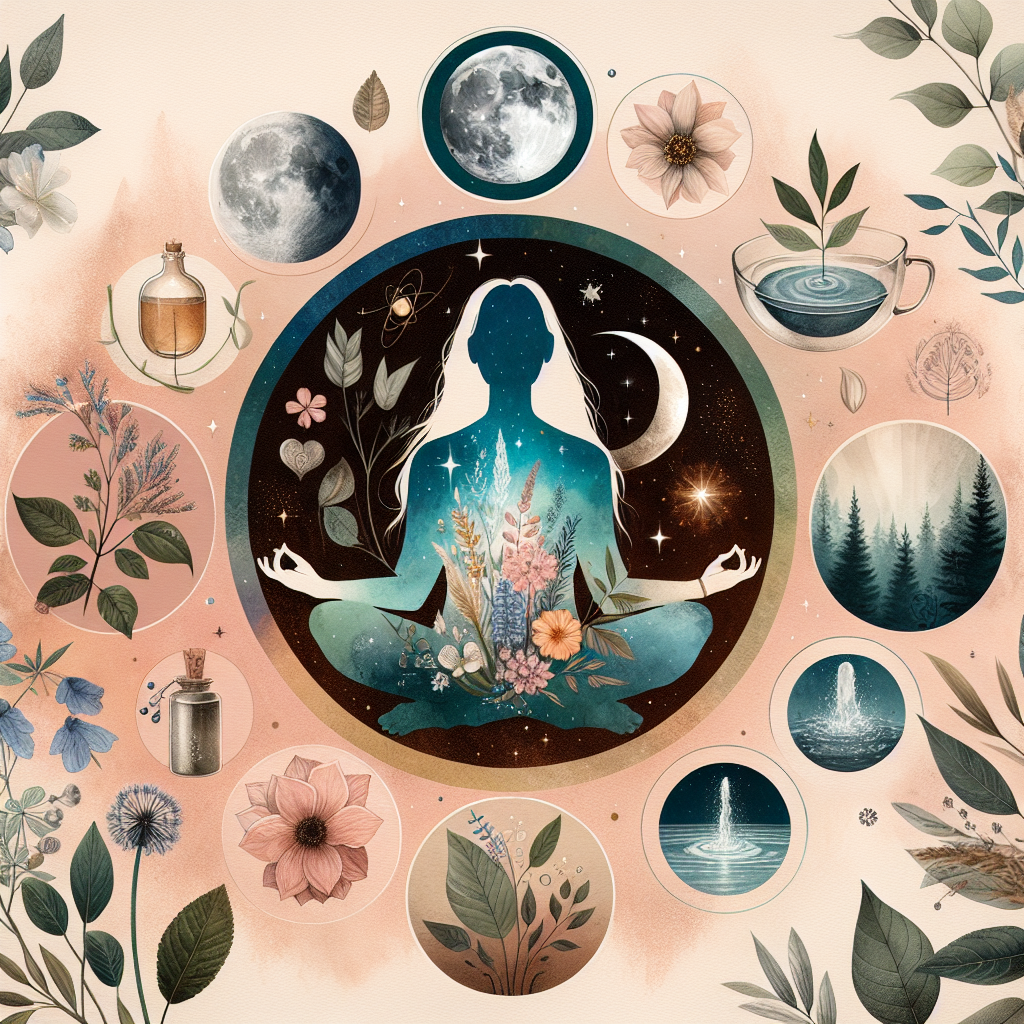Your Daily Reflection
Take a gentle moment to connect with yourself today.
Begin your reflection→6 Herbal Teas to Soothe the Soul and Calm the Mind
Published on June 14, 2025

In the sacred rhythm of women's lives, emotional well-being and spiritual nourishment are just as vital as physical health. Herbal teas—steeped in ancient wisdom and modern research—offer more than comfort. They create moments of calm, clarity, and connection. In this article, we explore six herbal teas that soothe the soul, uplift the spirit, and offer mindful rituals for emotional self-care.
The Healing Power of Herbal Teas
Herbal teas are infusions made from leaves, flowers, roots, and seeds—each carrying unique energetic and therapeutic properties. Unlike traditional teas from Camellia sinensis, herbal teas are naturally caffeine-free, allowing you to enjoy them any time of day without disrupting your inner calm.
More than a beverage, herbal tea can become a moment of stillness—an invitation to slow down, breathe deeply, and return to yourself. Rich in antioxidants and phytochemicals, these teas can ease tension, support sleep, and help you gently process emotions.

Autumn Cat Print Set: Vintage Oak Tree, Landscape & Portrait (Digital Download) by CatmosPrints
View on Etsy1. Chamomile: The Gentle Comforter
Botanical name: Matricaria chamomilla
Traditionally used for: Anxiety, restlessness, emotional overwhelm
Chamomile is one of the most beloved calming herbs. With its delicate floral scent and mild taste, it soothes the nervous system and invites you into a state of gentle ease. It’s ideal before sleep, after emotional conversations, or during times of anxiety.
How to enjoy it:
- Steep 1–2 teaspoons of dried chamomile flowers in hot water for 10 minutes.
- Sip slowly, ideally in silence or during a winding-down ritual.
Tip: Pair it with a warm blanket and soft candlelight to signal to your body that it’s safe to relax.
2. Lavender: The Heart Soother
Botanical name: Lavandula angustifolia
Traditionally used for: Tension, irritability, sadness
Lavender isn't just for pillows and bath salts—its floral infusion carries a subtle sweetness that opens the heart and eases mental fatigue. It’s an ideal tea to sip during emotional processing or when your heart feels heavy.
How to enjoy it:
- Use 1 teaspoon of dried lavender buds per cup, steeped for 5–7 minutes.
- Best enjoyed in the early evening, paired with deep breaths or journaling.
3. Lemon Balm: The Uplifter
Botanical name: Melissa officinalis
Traditionally used for: Emotional imbalance, low mood, mental fog
Lemon balm has a gentle citrusy flavor and is known to uplift the mood, ease nervous tension, and support emotional clarity. Herbalists often recommend it for women experiencing emotional dips during cyclical transitions or times of grief.
How to enjoy it:
- Steep 1–2 teaspoons of dried leaves for 10 minutes.
- Use during morning rituals to gently start the day with clarity and calm.
4. Rose Petal: The Emotional Healer
Botanical name: Rosa damascena
Traditionally used for: Heartache, grief, inner softness
Rose is a sacred feminine plant, energetically tied to self-love, compassion, and emotional openness. Drinking rose tea is like receiving a gentle embrace—ideal when emotions feel raw or when reconnecting with your sensuality.
How to enjoy it:
- Use 1 tablespoon of dried organic rose petals.
- Brew gently for 5–7 minutes and sip during your sacred tea moment.
5. Tulsi (Holy Basil): The Stress Resilience Tonic
Botanical name: Ocimum sanctum
Traditionally used for: Stress adaptation, emotional stability
Tulsi is an adaptogenic herb revered in Ayurvedic tradition. It helps your body respond to stress while grounding scattered emotions. Tulsi tea is a beautiful choice when life feels overwhelming and you need emotional centering.
How to enjoy it:
- Steep 1 teaspoon of dried tulsi for 10–15 minutes.
- Sip slowly while focusing on your breath or repeating calming affirmations.
6. Peppermint: The Mental Refresh
Botanical name: Mentha piperita
Traditionally used for: Mental fatigue, emotional stagnation
Peppermint is invigorating yet balancing. It clears mental fog, brings fresh energy, and can be especially helpful when you're feeling emotionally stagnant or indecisive.
How to enjoy it:
- Brew 1–2 teaspoons of dried peppermint leaves for 7–10 minutes.
- Ideal during your mid-afternoon pause or a refreshing self-care break.
Creating a Mindful Tea Ritual
Turning your tea-drinking into a ritual can deepen its emotional benefits. Here are a few ways to cultivate mindfulness during your tea time:
- Breathe with the Steam: As your tea steeps, inhale the aroma and take three slow breaths.
- Feel the Warmth: Hold your cup with both hands and notice the temperature and weight.
- Set an Intention: Ask yourself: What do I need in this moment? Calm? Clarity? Comfort? Let the tea answer.
- Sip Slowly: Allow yourself to taste the flavors fully. No rush, no screens. Just presence.
You can enhance your tea moment by creating a sacred space in your home, or by pairing it with other grounding practices like journaling or morning rituals.
Final Thoughts
Herbal teas offer more than physical benefits—they are vessels of soul care, quiet presence, and emotional harmony. Whether you’re tending to a tender heart, softening into stillness, or seeking clarity, these six teas can gently guide you back to yourself.
Invite the plant allies into your day. Let each cup be a sacred pause, a breath of peace, and a step toward balance.
